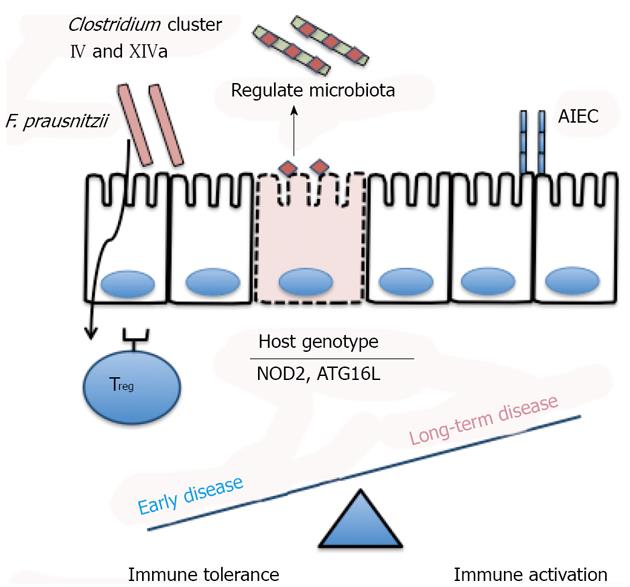Copyright
©2013 Baishideng Publishing Group Co.
World J Gastroenterol. Mar 14, 2013; 19(10): 1513-1516
Published online Mar 14, 2013. doi: 10.3748/wjg.v19.i10.1513
Published online Mar 14, 2013. doi: 10.3748/wjg.v19.i10.1513
Figure 1 Microbiota regulate immune tolerance and activation in inflammatory bowel disease.
Clostridium cluster IV and XIVa can induce regulatory T cell (Treg) polarization in the lamina propria[7]. One member of this cluster, Fecalibacterium prausnitzii (F. prausnitzii), correlates with reduced post-operative recurrence in Crohn’s disease (CD)[6]. Adherent invasive Escherichia coli (AIEC) are found with greater frequency in ileal CD[11]. Interaction with microbial species may differentially modulate the immune response in early inflammatory disease compared to long-term fibrotic disease[8]. Host genotype may regulate luminal microbial species. NOD2: Nucleotide-binding ligomerization domain-containing protein 2; ATG16L: Autophagy-related protein 16-1[9].
- Citation: Longman RS, Swaminath A. Microbial manipulation as primary therapy for Crohn's disease. World J Gastroenterol 2013; 19(10): 1513-1516
- URL: https://www.wjgnet.com/1007-9327/full/v19/i10/1513.htm
- DOI: https://dx.doi.org/10.3748/wjg.v19.i10.1513









